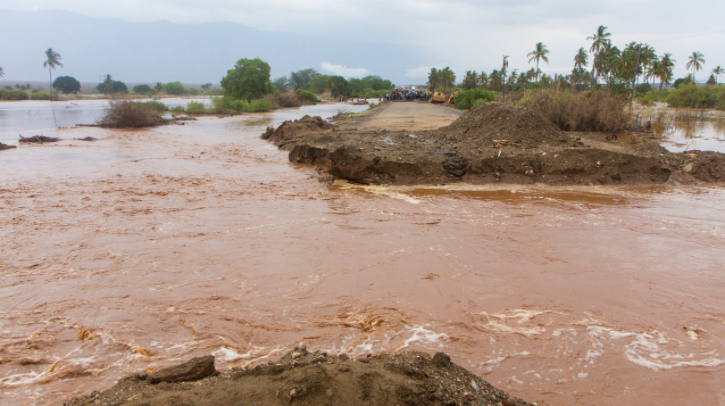Tanzania has launched the Early Warnings for All (EW4All) Initiative to protect the public from hazards including floods and extreme heat.
Official launch event
The event in Dodoma was organized by the Tanzania Meteorological Authority and supported by the Ministry of Foreign Affairs of Denmark through the project Denmark Support to EW4All Project.
The official launch event brought together more than 100 representatives from government agencies, development partners, non-governmental organizations and community leaders to share experiences and knowledge and to ensure coordination and collaboration in the path ahead. For example, the event was attended by the UN Development Programme, World Food Programme, UN Office for Disaster Risk Reduction (UNDRR), International Telecommuncation Union (ITU) and the International Federation of Red Cross and Red Crescent Societies (IFRC).
Deputy Minister of Transport, Hon David Mwakiposa Kihenzile, commented, “Early warning systems are vital for saving lives, protecting property and infrastructure and ensuring long-term sustainability, particularly in the face of climate change and increasing extreme weather events.”
The Danish Ambassador to Tanzania, Jesper Kammersgaard, reaffirmed Denmark’s commitment. He remarked, “In light of climate change, the need for EWS is more crucial than ever. This initiative is a significant step forward, and Denmark is proud to contribute to its success.”
Roadmap
Ahead of the launch, a comprehensive gap analysis was conducted across the four pillars of the EW4All Initiative, to shape the national EW4All roadmap. The workshop laid the groundwork for a national coordination mechanism to ensure efficient collaboration and implementation of the roadmap.
The Tanzania Meteorological Authority will continue to lead the coordination of the EW4All Initiative, with ongoing support from the Ministry of Foreign Affairs of Denmark through Denmark’s Support to EW4All Project. Once finalized, the roadmap is intended to serve as a strategic guide for addressing gaps in Tanzania’s EWS, with key support from WMO, UNDRR, ITU and IFRC.
State of the climate
At the event, the Tanzania Meteorological Agency also released the State of the Climate Report for Tanzania 2024, highlighting the challenges of extreme weather and climate impacts but also the progress being made by African countries in climate monitoring and climate service provision.
“The State of the Climate Report for Tanzania shows that 2024 was the hottest year on record for our country. These alarming changes underscore the importance of working together to address these challenges. Early Warning Systems play a key role in our preparedness,” said Kihenzile.
Tanzania, like neighboring countries, is exposed to the impacts of El Niño and La Niña events which can exacerbate flooding and drought. In 2024, it witnessed a rare tropical cyclone, Cyclone Hidaya, which made landfall on May 4, and was the strongest tropical storm ever recorded in Tanzania, contributing to widespread flooding.
Tanzania’s EWS launch event follows in the footsteps of its neighbors including Burundi, Rwanda, South Sudan and Uganda. According to the WMO, Kenya plans to be the next country in East Africa to launch the initiative.
In related news, Hon Kassim Majaliwa Majaliwa, the Prime Minister of the United Republic of Tanzania, recently launched a weather balloon to symbolically mark the beginning of the US$13.9m Systematic Observations Financing Facility (SOFF) project. Click here to read the full story.



